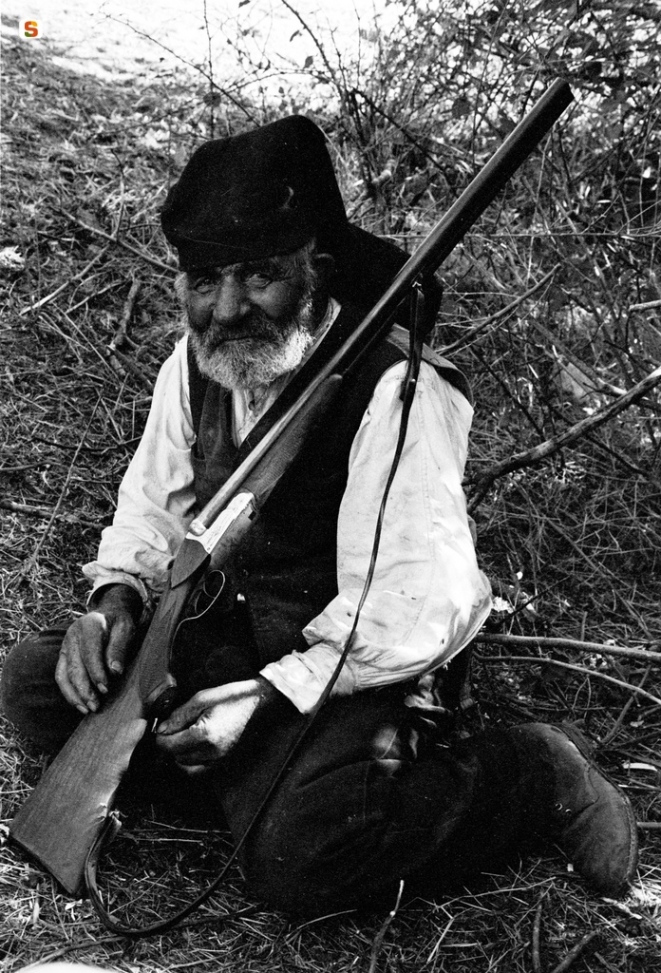Bandidos II part
Banditry in Sardinia in the 1800s
What indicated the Sardinian bandit as a bandit? Among the various categories identifiable with banditry one in particular gathered all the Sardinian bandits, namely who that persecuted or not persecuted by a warrant of arrest, grilled or already condemned sentenced for a crime, were removed to justice, escaping.
In the hodgepodge there were lots of them. It is evident as there was the identification of the gang – at least at the beginning. There is only the individual and this is the first consideration. Then, it was important to understand if crime or theft, of which someone was accused, was really committed.
For most of the times, the career of a bandit had its origin from an event that is apparently not arduous and certainly inconsistent. Anger and hate activated by a small spark, then burn up irremediably: the accusation of a theft or of a border violation of cattle, a threat, a tragic mistake, a calumny. The circumstance, the accusation has to be proved, but, in the interim, the suspect activated, in the indicted’s mind, a devastating process that is difficult to give up.
The total lack of faith in the regular justice materializes actually only in the escape and in the state of being in hiding. This is the unequivocal sign of the guilt to which then there will be the revenge. Sometimes that guilt is valid. Sometimes not, there is nothing true, but, by now mechanism was activated. A simple innuendo can mark the fate of a man; it can change forever the process of his life.

Therefore, they escape for a simple accusation, but also because they committed really that crime. There are some bandits who, after having committed a murder, became fugitive and carried on killing, becoming bloodthirsty criminals without no pity and bandits on which that murder was the only one of their criminal career, often composed of decades of state of being in hiding.
Often murders, that were not committed, oppressed on the shoulders of both the kinds of fugitives, but, actually, they were committed by other people, unknown and unsuspected, who did not hesitate to make giving the guilt away from them. Indeed, it was a common procedure to ascribe another murder to the desperate criminal, already fugitive and wanted. For this reason having one or more fugitives in the village could be really useful.
Bandit was who lived banned by community, the marginalized incited to fight in a condition that was the limits of his endurance. It is interesting to establish as the phenomenon of banditry has been becoming worsened in conjunction with the terrible agrarian crisis that damaged the Island in the second middle of the 1800s, as an opposition of that unsustainable fiscal pressure which the poorest classes were subjected to.
Incredibly, the protest was not focus on the poverty and on the oppression of the shepherds and of the farmers, circumstance stabilized by now for a long time, and an acceptable status, but it turn out when that subtle limit of dignity was overcame, namely when it lacked even the space for that short edge of subsistence. There the true break was executed. There was not another means of defense, only the angry revenge. In this way the hodgepodge of ferocity and rebellion, of social protest and criminal organization, spread rapidly through an impetus that was not seen before now.
They were the years when it was idealized the conception of heroism, of the courageous and rebel individual who is riotous against the society that oppresses. It entered into force a certain idea of banditry with its mythical importance. It reached the epilogue and it extinguished in the moment when other factors had the upper hand and that introduced the phenomenon in a modern perspective: some gratuitous features of cruelty, the organization in criminal gangs, the collusion with some unsuspected individuals, becoming hit men under payment, the continuous and perpetual union with the corrupt local power. All the features that extinguished the mythological and romantic nature of Sardinian bandit.
There is fondness and respect for the courageous figure of the first banditry, the charm of the obstinate dissident who inspired the beautiful verses of Sebastiano Satta. Sardinian population, in front of the choice between the bandit who speaks Sardinian language and who is rebel to the system and for example the writer-public official Giulio Bechi, author of the novel "Big hunting", who identified Sardinian people as "good wild individuals", chose the bandit, an example among everyone was Corbeddu, one of the last messenger of pure romanticism.
Also Sardinia had, in good and bad, its shaky, hard, melancholy and tormented epopee. A complete islander chanson de geste. A conflict, son of the misunderstanding between who was not able to understand – the Government – and who was not able to tolerate anymore - population. In this field everything became licit, also believing, hoping, therefore opposing too. This concise conflict did not become a war. It was focused on sudden revolts of desperate courageous individuals, lost at the beginning. But, it was enough to continue living or better surviving, because when the history of a population is the history about many, too dominations, only rebel individuals are the only heroes which believing to.